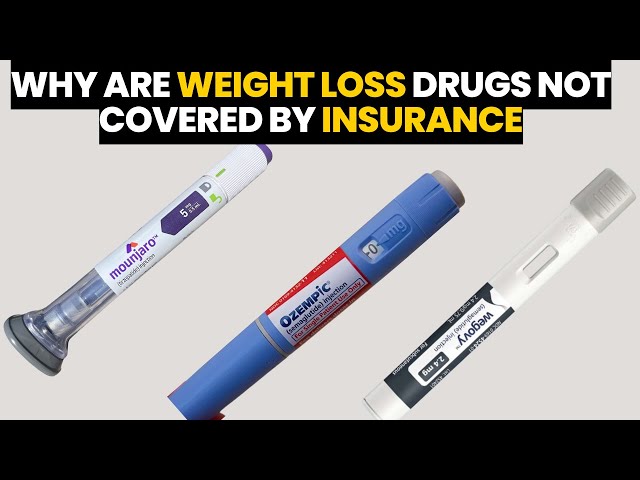Weight loss drugs like Ozempic and Wegovy have transformed the lives of many, but questions remain about who can afford them and whether insurance plans should cover them. These medications, initially designed for managing Type 2 diabetes, have shown significant benefits for weight loss, cardiovascular health, and chronic disease management. However, their high costs create barriers for many patients.

Insurance Coverage Challenges
- State Employee Health Plans:
- Anita Blanchard, a professor in North Carolina, experienced life-changing results using Ozempic for weight loss. Initially, her state employee health insurance covered the medication.
- However, due to the rising costs — with these drugs consuming 10% of the plan’s annual prescription budget — the state’s health plan stopped covering them for weight loss in April 2024. The plan still covers the drug for diabetes management.
- Medicaid Coverage:
- In a surprising move, North Carolina’s Medicaid program began covering weight loss medications for its beneficiaries, citing the long-term cost-saving potential of reducing obesity-related diseases. Medicaid’s rebates significantly lower the drug’s cost compared to employer health plans.
- Federal Proposals:
- In November, the outgoing Biden administration proposed expanding Medicaid and Medicare coverage of anti-obesity drugs nationwide. While this initiative aims to address obesity as a chronic disease, it faces high cost projections, estimated at $40 billion over 10 years.
Barriers for Private and Employer Plans
Patients like Blanchard, who no longer have insurance coverage for weight loss drugs, face out-of-pocket costs of up to $1,200 per month. High prices and restrictive insurance policies are common hurdles, even as obesity is increasingly recognized as a medical condition rather than a personal failure.
The Case for Coverage
Experts argue that covering weight loss drugs could reduce long-term healthcare expenses by lowering obesity rates and related conditions like diabetes, hypertension, and heart disease. For example:
- Financial Benefits: Medicaid Secretary Kody Kinsley highlighted that addressing obesity could reduce the state’s $1 billion annual spend on related diseases.
- Health Outcomes: Clinical trials show that GLP-1 agonists not only promote weight loss but also reduce risks of heart attacks and strokes, even in patients without diabetes.
Persistent Stigma
Bias against treating obesity as a medical condition continues to limit coverage. Dr. Melissa Jones, a family medicine physician, noted that insurance companies often resist covering these drugs, viewing obesity as a lifestyle issue rather than a chronic disease.
Alternative Solutions
For those unable to afford brand-name drugs, compounding pharmacies offer generic alternatives at lower prices, though their effectiveness may vary. For example, Blanchard now pays $225 monthly for a compounded version, far less than the brand-name cost.
The Path Forward
Experts like Duke University cardiologist Dr. Nishant Shah advocate for systemic changes to eliminate barriers to weight loss treatments. These include making medications more affordable and reframing obesity as a medical condition requiring long-term management.
As debates continue, the question of who should have access to weight loss drugs remains pivotal in addressing the obesity epidemic and reducing its associated healthcare costs.




